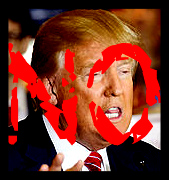
No, Brody vs. Mckenzie is not the name of some famous legal case that one should know something about. However, it is the last name of the two finalists seeking a rare open seat on Idaho’s State Supreme Court, and Idaho voters should know who they are and what their approach to the law is.
Unfortunately, there are too few who know who they are and where they stand on the various complex matters that come before the Supreme Court.
Idaho’s few political pundits believe Ms. Brody will win largely based on her having won the May primary, with 30.3% of the vote to McKenzie’s 20.7% (45,282 votes to 41,348). In addition, the Rupert attorney who practices business and water law, represents schools and hospitals as well as small farmers, is also a competent trial attorney. The $176,000 she raised for the primary was more funds than her three challengers combined.
State Senator Curt McKenzie’s supporters question why trial attornies are so heavily investing in her candidacy, not so subtley implying she would be indebted to them and favor their side of cases regardless of the law. It’s a vicious canard and has no place in a judicial campaign. Supporters of Ms. Brody in turn have encouraged her to cite Idaho Power’s strong support for McKenzie by allegedly”loaning” Governor Otter’s former campaign chief, Jeff Malmen, to McKenzie to offer advice. Malmen is now the government affairs director for Idaho Power.
Her reluctance to make an issue of Malmen’s role may in part stem from her utilization of another Otter campaign staffer, Jason Lehosit, to provide her advice.
Asked how she responds to the trial attorney issue, she smiles, cites her broad-based clientele and then says “I also tell folks the most famous trial attorney ever was a man named Abraham Lincoln.”
The other reasons she will win are because she is the better candidate, has more personality, and has run a smarter campaign than has the conservative Republican Senator from Boise more noted for his strong pro-life views than anything else.
Brody has campaigned all across Idaho, spoken before Republican and Democratic gatherings, Rotary Clubs, and any group that will give her a lectern. Whenever she hits a community she already has a list of that communities “movers and shakers,” and she starts dialing the phone and introducing herself. In short, she is running a traditional Idaho campaign that stresses the importance of personal relationships.
She exerts energy, smarts, charm and has a nice narrative. Born in Wayne City, Michigan 46years ago, she and her siblings moved frequently because both parents worked for United Airlines. She attended high school in Colorado and then attended the University of Denver on a scholarship majoring in International Studies and Russian. She spent one year in St. Petersburg, then returned to the University of Denver where she double-majored, obtaining her law degree while also getting an MA in International Studies.
She married another attorney who had fallen hard for Idaho and had located in Twin Falls. They have two boys and are active members in the Rupert Catholic parish. For her first ten years in Idaho she worked for and became a partner in a small but well-known Twin Falls law firm. Then she decided she had to shorten her commute so founded her own law firm in Rupert just around the corner from the police station and the courthouse.
Her former partners all speak highly of her and she received the highest rating from the Idaho Bar Association. She has always displayed great respect for the concept of legal precedence and does not believe judges should be activists creating new law.
Everywhere she goes she makes new friends. She is proud that she has campaign coordinators in 38 of Idaho’s 44 counties and hopes to have all 44 covered by October 1st.
If elected she would be the third female member ever to serve on the Court following Linda Trout and Cathy Silak both of whom were initially appointed by Governor Cecil Andrus and then stood for election . She does not make her gender a major part of her pitch, instead stressing her competence and judicial temperament. She does, however, say she believes she would bring a unique and broadening perspective to the bench.
In the May primary approximately 180,000 ballots were cast, a miserable turnout of 23% of eligible voters. Even more sad was that there was a “drop-off” of 30,000 voters not bothering to even make a choice in the Supreme Court race.
Here’s hoping Idaho voters recognize the opportunity to elect a truly exceptional candidate who will make them proud.




